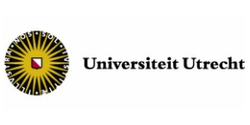PhD: Numerical Modelling of Fluid-injection Induced Seismicity
Updated: 24 Mar 2025
The Department of Earth Sciences is looking for a highly motivated candidate for a PhD position at its High Pressure and Temperature Laboratory (HPT), run by the Experimental Rock Deformation Group.
Your job
Geothermal energy, as a sustainable source with a small land footprint, is increasingly playing a crucial role in the energy transition. In the Netherlands and Europe, there is growing interest in tapping into deep fractured reservoirs to exploit high enthalpy geothermal resources.
Sustainable geothermal operations in deep fractured reservoirs require sustained reservoir circulation, thermal longevity, and minimal seismic risk, all of which are closely linked to the connectivity of the fracture system. However, the high pressure resulting from re-injected fluid can cause fracture slip, significantly altering the connectivity and hydraulic conductivity of the fracture systems, potentially leading to induced seismicity. To ensure sustainable geothermal operations, it is essential to understand how fractures behave under in-situ geothermal conditions, how they impact the connectivity and hydraulic properties of fracture systems, and how to mitigate seismogenic fracture slip. This PhD project is part of the NWO-funded GeoFirst project, which aims to advance sustainable geothermal exploitation and enhance seismic hazard management. This PhD project will involve close collaboration with geothermal energy operators, research and monitoring institutes, and geothermal industry associations.
Within this PhD project, you will develop numerical models to simulate fluid injection-induced fracture and flow behaviour, as well as permeability evolution in fracture systems, utilising fracture networks mapped from geothermal field sites. You will incorporate friction-stability-permeability relationships, derived experimentally in a companion PhD project, to accurately simulate fracture behaviour. You will also develop field-scale reservoir models to compare against field monitored injection/production and seismic monitoring data. Through collaborative experimental and numerical efforts, you will contribute to the development of a sustainable geothermal operation strategy. Throughout the project, you will regularly interact with the other consortium partners and present your results to a broader audience.
A personalised training programme will be set up, reflecting your training needs and career objectives. About 20% of your time will be dedicated to this training component, which includes following courses/workshops as well as training on the job in assisting in the Bachelor’s and Master’s programmes of the department at Utrecht University.
Requirements:
We are looking for a candidate in numerical modelling of fluid-injection induced seismicity in geothermal systems.You must have completed your MSc degree in Geomechanics, Hydrogeology, Geological engineering, Civil Engineering, Reservoir Engineering, or a related discipline by the time the position starts. Preferably, you will also have:
- experience or strong interest in geomechanical and/or hydrological modelling using continnum-based numerical methods (e.g., finite element method, finite difference method);
- strong quantitative and programming skills;
- the ability to work independently and as part of a team in a multidisciplinary research environment;
- enthusiasm for geo-energy and applications relevant to the sustainable use of the subsurface; and
- excellent communication and interpersonal skills.
Due to the international character of our research, good command of spoken and written English is essential. We highly encourage applicants from all members of our community and of diverse backgrounds to join us.
Salary Benefits:
We offer:
- a position for one year, with an extension to a total of four years upon a successful assessment in the first year, and with the specific intent that it results in a doctorate within this period;
- a working week of 38 hours and a gross monthly salary between €2,901 and €3,707 in the case of full-time employment (salary scale P under the Collective Labour Agreement for Dutch Universities (CAO NU));
- 8% holiday pay and 8.3% year-end bonus;
- a pension scheme, partially paid parental leave and flexible terms of employment based on the CAO NU.
In addition to the terms of employment laid down in the CAO NU, Utrecht University has a number of schemes and facilities of its own for employees. This includes schemes facilitating professional development, leave schemes and schemes for sports and cultural activities, as well as discounts on software and other IT products. We also offer access to additional employee benefits through our Terms of Employment Options Model. In this way, we encourage our employees to continue to invest in their growth. For more information, please visit Working at Utrecht University.
36 - 40 hours per week
Princetonlaan 8a

